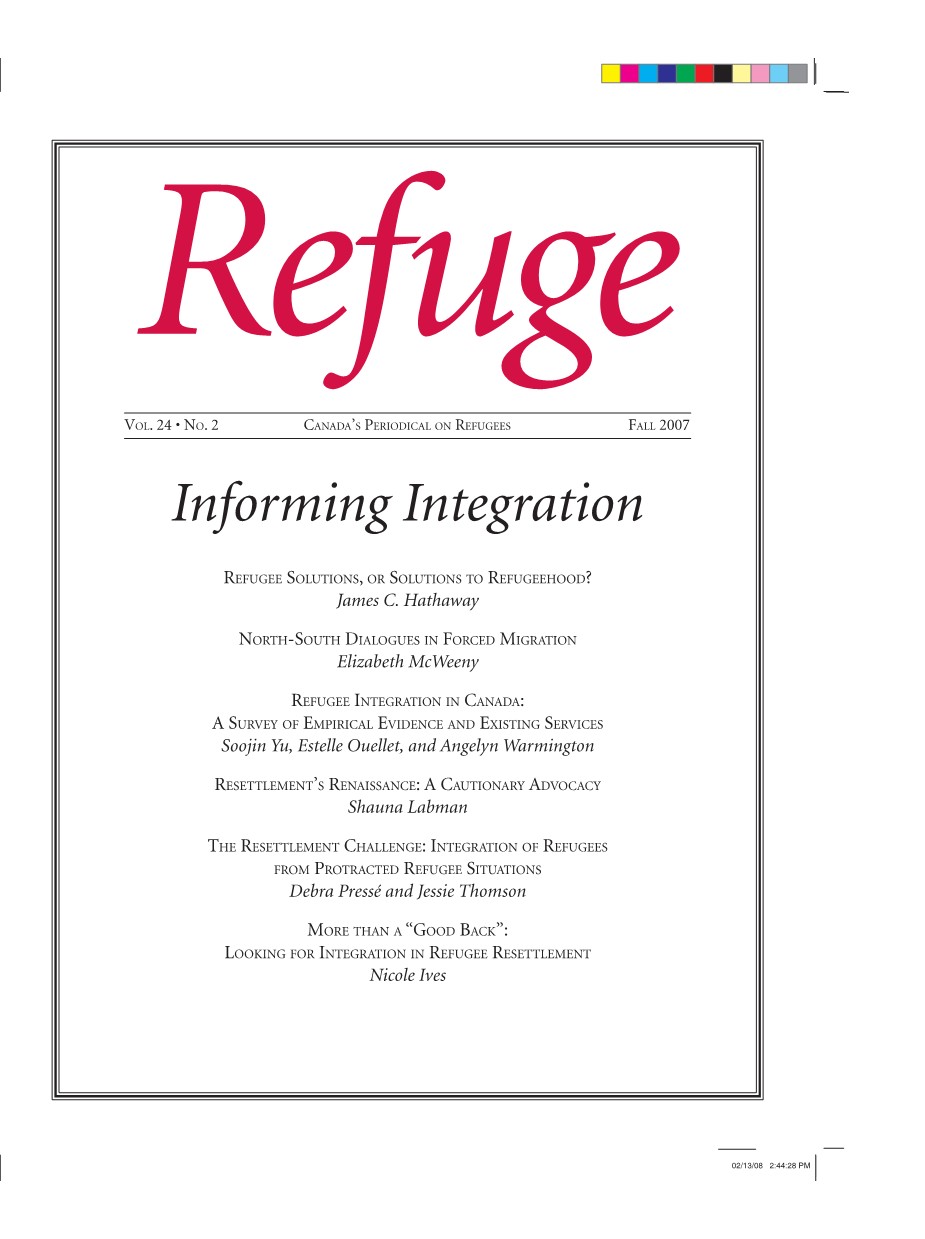Living with Precarious Legal Status in Canada: Implications for the Well-Being of Children and Families
DOI:
https://doi.org/10.25071/1920-7336.21388Keywords:
Canada, legal status, precarious status, citizenship, family, children, integration, well-beingAbstract
This study focused on the effects of precarious status on the well-being of fifteen participants with particular attention to their attempts to claim services, their feelings of belonging and sense of social support, and the effects of parents’ status on children. It investigates ways in which the status of one family member can affect the well-being of the entire family. Those who had children reported that the family’s status disadvantaged their children, whether they were Canadian or foreign-born, as parents’ status was used to justify denying children rights to which they are entitled by international, national, and provincial laws. The paper challenges approaches to citizenship and immigration status that fail to consider the implications of legal status for a person’s primary social units and networks.Metrics
Downloads
Published
How to Cite
Issue
Section
License
Copyright (c) 2007 Judith K. Bernhard, Luin Goldring, Julie Young, Carolina Berinstein, Beth Wilson

This work is licensed under a Creative Commons Attribution-NonCommercial 4.0 International License.
Refuge authors retain the copyright over their work, and license it to the general public under the Creative Commons Attribution-Non Commercial License International (CC BY-NC 4.0). This license allows for non-commercial use, reproduction and adaption of the material in any medium or format, with proper attribution. For general information on Creative Commons licences, visit the Creative Commons site. For the CC BY-NC 4.0 license, review the human readable summary.







